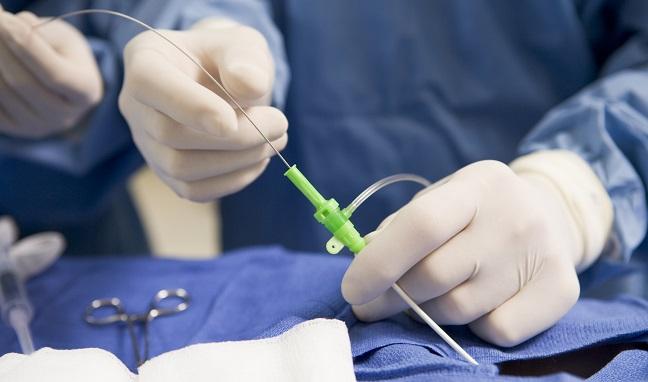The Function of Cardiology in Preventive Health and Wellness Services
Cardiology is progressively acknowledged for its crucial duty in preventative health and wellness and wellness solutions. By highlighting positive approaches, cardiologists intend to lower the incidence of heart diseases. This method encompasses threat assessments, way of living changes, and normal testings. Through these initiatives, patients are encouraged to take control of their heart health and wellness. Nonetheless, the assimilation of technology and cooperation with various other health care service providers increases vital inquiries concerning the future of preventative treatment. What might this advancement require?

Understanding Preventative Cardiology
Comprehending preventative cardiology entails recognizing its vital role in reducing cardio disease threat via aggressive steps. This branch of medicine highlights the importance of lifestyle modifications, consisting of diet regimen, workout, and stress and anxiety administration, to prevent heart-related issues before they develop. It promotes for regular wellness screenings and education and learning to equip people in making informed health and wellness choices.Preventative cardiology additionally encompasses the identification of threat variables such as hypertension, diabetic issues, and high cholesterol, prompting individuals to take on healthier practices - Cardiology. By focusing on prevention instead of response, this technique not only enhances private health results however also relieves the overall burden on health care systems. Additionally, it advertises collaboration among medical care carriers, clients, and communities, promoting a holistic method to heart health and wellness. Ultimately, recognizing preventative cardiology motivates a shift in the direction of a proactive mindset, prioritizing long-term wellness and well-being
Risk Assessment and Monitoring
Threat evaluation is crucial in determining cardiovascular dangers that can bring about serious health and wellness problems. Reliable administration of these risks usually includes executing way of life alteration strategies, such as improved diet regimen and boosted physical task. By understanding and dealing with these factors, people can considerably decrease their likelihood of creating heart diseases.
Determining Cardiovascular Risks
Although countless elements add to cardio wellness, identifying cardio risks is vital for reliable avoidance and administration. Cardiovascular risk analysis includes evaluating numerous aspects, including family members history, age, way of life, and gender practices such as smoking and physical lack of exercise. Additionally, wellness conditions like high blood pressure, diabetic issues, and high cholesterol greatly affect an individual's danger account. Health care specialists use devices such as risk calculators and biomarker examinations to quantify these threats and stratify clients as necessary. Early identification makes it possible for targeted interventions, assisting patients toward ideal administration approaches. By recognizing these dangers, cardiologists can team up with clients to develop personalized plans that highlight surveillance and proactive treatment, inevitably reducing the possibility of damaging cardio events.
Way Of Life Alteration Strategies
Reliable lifestyle modification methods play an essential function in taking care of cardio wellness and minimizing associated risks. These techniques include nutritional modifications, raised physical task, and smoking cessation. A heart-healthy diet rich in fruits, vegetables, whole grains, and lean proteins can significantly reduce cholesterol levels and blood pressure. Routine exercise, such as cardiovascular exercises, improves and strengthens the heart circulation. Additionally, quitting smoking reduces the threat of cardiovascular disease and boosts total health. Health care experts typically utilize risk assessment devices to customize these adjustments to individual needs effectively. By incorporating way of life modifications into regular treatment, cardiologists can equip patients to organize their heart wellness, eventually resulting in improved end results and minimized healthcare expenses.
Way Of Life Modifications for Heart Wellness
To preserve ideal heart health and wellness, individuals need to embrace a variety of way of living adjustments that greatly lower the probability of heart diseases. A balanced diet regimen rich in fruits, veggies, whole grains, and lean proteins is necessary. Minimizing saturated fats, trans fats, and salt consumption can significantly lower cholesterol levels and blood stress. Routine exercise, such as vigorous strolling or cycling for a minimum of 150 mins each week, additionally plays a considerable duty in enhancing the heart and boosting circulation.Additionally, managing anxiety through methods like mindfulness and reflection can have a positive influence on heart wellness. Avoiding cigarette items and restricting alcohol consumption additionally add to a healthier cardiovascular system. Keeping a healthy weight is vital, as excessive weight is a important link major danger aspect for heart problem. By incorporating these way of life adjustments, people can foster not only their heart health and wellness yet additionally their overall well-being, causing an extra vivid and active life.
The Relevance of Normal Testings
Along with lifestyle modifications, routine screenings play a crucial duty in maintaining heart health and avoiding heart diseases. These evaluations are significant for determining danger aspects such as high blood pressure, high cholesterol, and diabetes mellitus, which can bring about significant difficulties if left unchecked. Cardiologists recommend regular analyses to monitor heart feature and identify problems early, permitting for prompt intervention.Screenings, which might include blood electrocardiograms, examinations, and echocardiograms, provide crucial data for tailored therapy plans. This proactive approach encourages people to make educated decisions concerning their wellness, improving overall health. In addition, routine check-ups cultivate a more powerful doctor-patient partnership, motivating open dialogue concerning heart health and wellness concerns.
Integrating Modern Technology in Precautionary Care
Welcoming innovation has changed preventative care in cardiology, offering cutting-edge tools that boost individual monitoring and involvement. Wearable devices, such as smartwatches and health and fitness trackers, allow individuals to check their heart rate, activity degrees, and general wellness metrics in real-time. These gadgets not just offer prompt comments yet likewise promote data showing to doctor, enabling prompt interventions when necessary.Additionally, telemedicine has actually become a popular attribute in cardiology, enabling remote appointments and follow-ups. This ease of access ensures that patients can get treatment without the obstacles of travel and time restrictions. Mobile wellness applications additional assistance preventative measures by using individualized insights and tips for drug adherence, lifestyle changes, and arranged testings.
Patient Education and Empowerment
Empowerment with education and learning is essential in the domain of preventative cardiology, as notified individuals are extra likely to participate in positive health and wellness actions. By recognizing their cardio health, patients can make educated decisions relating to way of life alterations and adherence to therapy strategies. Educational campaigns, consisting of workshops, educational handouts, and on-line sources, offer to enhance client expertise about danger variables such as hypertension, cholesterol levels, and the relevance of regular exercise.Moreover, equipping people promotes a collaborative method to wellness administration. When clients are mindful of their conditions and the implications of their selections, they are most likely to take part in discussions with doctor, bring about tailored care approaches. This collaboration not only advertises liability however likewise improves motivation for preserving a heart-healthy lifestyle (Cardiology). Ultimately, individual education is a foundation of preventative cardiology, equipping people with the tools required to take cost of their cardiovascular health and wellness
Teaming up With Various Other Medical Care Professionals
Effective client education lays the foundation for joint initiatives amongst healthcare professionals in the area of preventative cardiology. Cardiologists, medical care physicians, nutritionists, and mental wellness professionals have to operate in synergy to enhance client outcomes. By sharing strategies and understandings, these experts can create detailed care strategies that deal with both physical and mental aspects of heart health.Regular interdisciplinary conferences foster interaction, making sure that all staff member are informed regarding person development and challenges. This partnership promotes timely treatments and modifications to therapy check these guys out strategies, enhancing the efficiency of preventative measures.Furthermore, incorporating innovation, such as common digital health records, boosts data availability and streamlines coordination efforts. This all natural technique not just improves person adherence to way of life adjustments yet also empowers people to organize their cardio wellness. Ultimately, cooperation among health care experts is crucial in promoting an aggressive method to heart problem prevention.
Often Asked Questions
What Is the Difference Between Cardiology and General Healthcare?
Cardiology focuses on diagnosing and treating heart-related conditions, while basic healthcare includes a more comprehensive series of clinical services addressing various health issues - Cardiology Jupiter. Each plays an important duty in maintaining total wellness and wellness
Exactly how Often Should I See a Cardiologist for Preventative Treatment?
The frequency of cardiologist brows through for preventative care differs based on private risk variables. Usually, annual consultations are recommended for those with existing problems, while others may call for much less regular check-ups based upon overall heart health and wellness.
Can Stress And Anxiety Influence My Heart Health And Wellness Significantly?
Anxiety can considerably impact heart health by contributing to high blood pressure, inflammation, and harmful way of living selections. People experiencing chronic stress and anxiety might be at raised risk for cardio issues, necessitating efficient tension monitoring techniques for much better heart wellness.
Are There Certain Heart Conditions I Should Know?
People ought to know conditions like high blood pressure, coronary artery condition, heart failure, arrhythmias, and valvular heart condition. Acknowledging these problems early can lead to better management and improved general heart health results.

What Are the Expenses Connected With Preventative Cardiology Solutions?
The expenses connected with preventative cardiology solutions can differ considerably. Elements such as location, kind of service, and insurance policy protection impact total costs, making it important for people to seek comprehensive information details to their scenarios. Through these initiatives, individuals are motivated to take control of their heart health. It promotes for regular wellness screenings and education and learning to empower people in making informed wellness choices.Preventative cardiology also includes the identification of threat elements such as high blood pressure, diabetes, and high cholesterol, prompting individuals to embrace much healthier practices. In enhancement, it promotes partnership amongst healthcare areas, service providers, and individuals, cultivating an all natural approach my link to heart health and wellness. Routine physical task, such as quick strolling or cycling for at least 150 minutes per week, likewise plays a considerable duty in improving and strengthening the heart circulation.Additionally, managing tension with strategies like mindfulness and reflection can have a favorable influence on heart wellness. Cardiology specializes in detecting and dealing with heart-related problems, while general health and wellness care includes a wider variety of medical services dealing with various health issues.